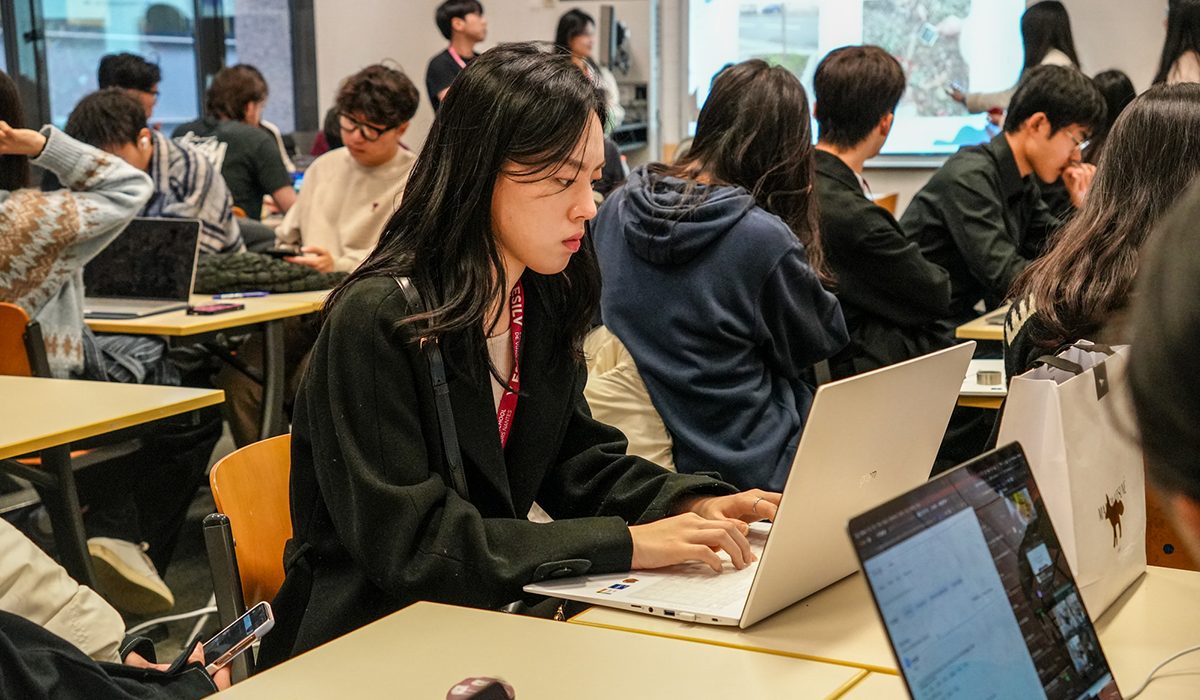French engineering schools, often known as “Grandes Écoles d’Ingénieurs,” have a strong reputation both in France and internationally. Its higher education system is globally renowned, particularly for its unique and excellent engineering programs. Learning French is not only a requirement to enter these schools but crucial for integrating.
By learning French, international students ensure they can fully participate in academic activities, integrate into the country’s society, and maximize their educational and professional opportunities.
What level of French is required to enter an engineering school in France?
French engineering schools are elite institutions due to their highly selective admission process, rigorous academic standards, and prestigious history.
They require students to pass challenging entrance exams after intensive preparatory classes. Students willing to study in an engineering school in France must consider the new regulatory constraints.
The rules for non-French speakers to enter a French engineering school have changed: you need a B2 level at the end of your studies; now, you need a B1 level to enter the school.
When they join the programme, non-French-speaking international students must demonstrate a minimum B1 level in French as a foreign language, certified by a test recognized in the academic world.
Mastering French would help you live correctly in France, mainly because the French don’t master English daily. Paris is the exception to the rule. Remember that Paris is an international city with many tourists and foreigners arriving daily. This situation is different from the rest of the country.
Learning French: The list of tests recognized in the academic world
International students who wish to enrol in an engineering school in France must demonstrate proficiency in the French language, primarily if the program is taught in French.
Prospective students should check the requirements of the engineering schools they are interested in, as these requirements can vary between institutions.
In general, the specific French language tests commonly accepted include:
- DILF (Le Diplôme Initial de Langue Française): The DILF (Diplôme Initial de Langue Française) is an official French language proficiency diploma designed to assess and certify the basic level of French language skills for non-native speakers. It covers listening, speaking, reading, and writing skills.
- Test de Connaissance du Français (TCF): TCF-DAP (Demande d’Admission Préalable): Specifically for students applying to the first year of a bachelor’s degree or a school of architecture.
- TCF-TP (Tout Public) is a more general version of the TCF that can also be accepted for various academic purposes.
- Diplôme d’Études en Langue Française (DELF): There are four levels (A1, A2, B1, B2), but for higher education, levels B2 or higher are typically required.
- Diplôme Approfondi de Langue Française (DALF): This certificate is a more advanced diploma with two levels (C1 and C2). DALF C1 or C2 is highly regarded and required for more competitive programs.
- Test d’Évaluation de Français (TEF): This test assesses general French proficiency and can be used for admission to various programs.
In addition to language proficiency tests, some engineering schools may have entrance exams or require standardized test scores like the GRE (Graduate Record Examination).
These assessments evaluate the qualifications and readiness of applicants for graduate-level education. Schools also commonly assess students based on their academic records, recommendation letters, and personal statements.
However, demonstrating a certain level of French proficiency is often recommended or required to facilitate everyday life and integration into French society.
What is a B1 level?
B1 corresponds to an independent user level (threshold level). By achieving a B1 level, you demonstrate that you can:
- Understand the main points of clear standard input on familiar matters regularly encountered in work, school, leisure, etc.
- Be able to deal with most situations likely to arise whilst travelling in an area where the target language is spoken.
- Be able to produce simple connected text on topics that are familiar or of personal interest,
describe events, experiences, dreams, hopes, and ambitions, and briefly give reasons and explanations for opinions and plans.
How can you learn French when living abroad?
Learning French while living abroad can be a rewarding experience. Several effective methods are available to help you achieve proficiency.
One valuable resource is the Alliances Françaises, which offers language courses and cultural activities in numerous countries worldwide. These institutions provide a structured learning environment with experienced instructors.
For those who prefer online learning, websites such as Duolingo, Babbel, and Rosetta Stone offer interactive lessons that cover vocabulary, grammar, and pronunciation.
Additionally, watching French TV shows and movies with subtitles can significantly improve your listening skills and comprehension. Popular platforms like Netflix and Amazon Prime have various French content available.
Learning French is up to you!
Being proactive is critical when learning French. Register for the language proficiency test and present your certification during admission or enrollment.
Proactively obtaining and showcasing your French language skills can significantly enhance your educational and professional opportunities, demonstrating your commitment and preparedness to succeed in a French-speaking environment.
ESILV helps you learn French
ESILV and De Vinci Higher Education implement various resources to help international students progress in French.
A daily immersion in a French-speaking environment, Le FLE (Français Langue Étrangère) modules integrated into each course, a dedicated language department, an international student support association such as ESN DeVinci, and a “Buddy”.
Designed in 2013 and distributed through the ESN (Erasmus Student Network), the BuddySystem project enables local participants to manage and coordinate the integration of new students and promote intercultural experiences through buddy pairs from diverse backgrounds and corners of the world.
This support will help you navigate your life and meet the specific requirements of the language.
Learn more about ESILV’s international programmes
This post was last modified on 18 June 2024 7:06 pm






